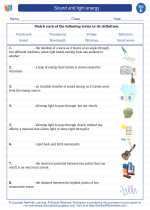Sound and light energy -> experiments
Experiments: Understanding the Scientific Method
Experiments are an essential part of the scientific method, allowing scientists to test hypotheses and gather data to support or refute their ideas. Here's a breakdown of the key elements of experiments:
1. Formulating a Hypothesis
A hypothesis is a testable prediction about the outcome of an experiment. It is based on prior knowledge and is often stated as an "if-then" statement.
2. Designing the Experiment
The experiment should be carefully designed to test the hypothesis effectively. This includes identifying variables, creating a procedure, and selecting appropriate materials and tools.
3. Variables
In an experiment, there are independent variables (the factors being tested) and dependent variables (the factors that are measured or observed as a result of changes to the independent variables).
4. Controlling Variables
It's important to control or keep constant any variables that could influence the outcome of the experiment, other than the independent variable being tested.
5. Data Collection
During the experiment, data is collected through observations, measurements, and recordings. This data is used to analyze the results and draw conclusions.
6. Analysis and Conclusion
After the data is collected, it is analyzed to determine whether the results support or refute the hypothesis. A conclusion is then drawn based on the analysis.
7. Repeating the Experiment
Repeating the experiment multiple times can help ensure that the results are consistent and reliable, strengthening the validity of the findings.
Study Guide for Experiments:
- What is a hypothesis and why is it important in an experiment?
A hypothesis is a testable prediction about the outcome of an experiment. It provides a clear focus for the experiment and serves as the starting point for scientific inquiry. - Explain the difference between independent and dependent variables.
The independent variable is the factor being tested or manipulated by the experimenter, while the dependent variable is the factor being measured or observed as a result of changes to the independent variable. - Why is it important to control variables in an experiment?
Controlling variables helps ensure that any changes in the dependent variable are due to changes in the independent variable being tested, and not to other factors. - What is the significance of repeating an experiment?
Repeating an experiment allows scientists to verify the reliability and reproducibility of their results, strengthening the validity of their findings.
By understanding the key principles of experiments and the scientific method, students can develop critical thinking skills and a deeper appreciation for the process of discovery in science.
[Experiments] Related Worksheets and Study Guides:
.◂Science Worksheets and Study Guides Fifth Grade. Sound and light energy
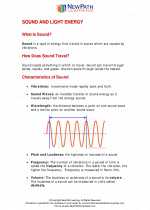
 Activity Lesson
Activity Lesson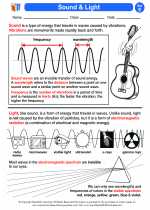
 Worksheet/Answer key
Worksheet/Answer key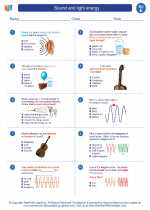
 Worksheet/Answer key
Worksheet/Answer key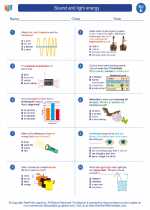
 Worksheet/Answer key
Worksheet/Answer key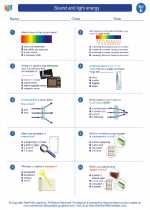
 Worksheet/Answer key
Worksheet/Answer key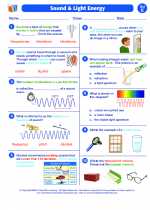
 Vocabulary/Answer key
Vocabulary/Answer key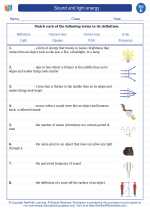
 Vocabulary/Answer key
Vocabulary/Answer key